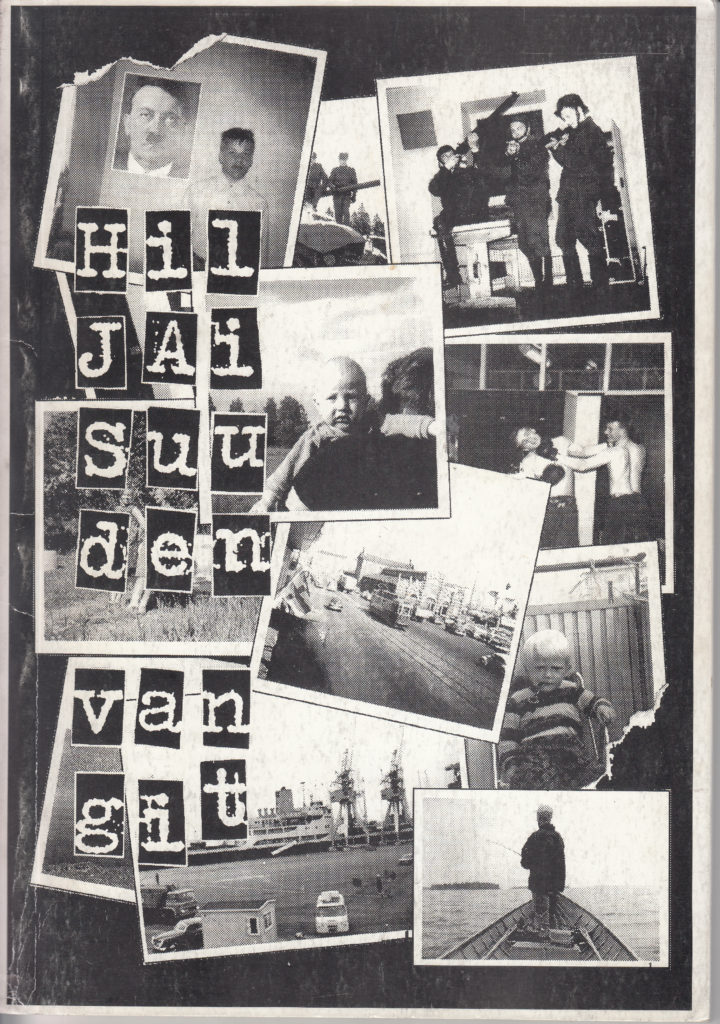I started to feel that I didn’t know roleplaying games well enough so I came up with the plan to read a roleplaying game corebook for every year they have been published. Selection criteria is whatever I find interesting.

Hiljaisuuden vangit (Prisoners of Silence) is the most highly regarded Finnish roleplaying game of the Nineties. It’s also extremely hard to find because of a small original print run. I read it in the second edition published in 1997.
The worldbuilding conceit in Hiljaisuuden vangit is a well-known one: What if the Nazis had won the Second World War? Two things make it interesting:
- This is a Finnish game set in Finland. The specific history we had with the Nazis and the Second World War defines the game.
- The characters are ordinary people who oppose the fascist regime. The term for a player character is toisinajattelija, meaning dissident.
In Hiljaisuuden vangit, the characters try to resist a longstanding fascist regime in Finland.
During most of the Second World War, Finland was allied with Nazi Germany. This means that in a world where the Nazis won Finland would have been on the winning side, achieving the aim of creating Suur-Suomi, Greater Finland. In real life, this goal was stymied when the Soviet Union won the Continuation War. (Or as the end of the war is described in Finnish propaganda, when we won a torjuntavoitto, defensive victory.)
The war aims of the Continuation War were to carve a Finnish empire ranging to the Urals, cleansed of it’s Slavic inhabitants in conjunction with larger German plans of mass genocide and ethnic cleansing. In terms of worldbuilding, the question asked by Hiljaisuuden vangit is what kind of a Finland would have been created by winning that war.
The perspective of the characters is everyday. You’re not a resistance hero but just some poor schlub who has experienced a moral awakening. This stylistic choice makes the game tangible and real, perhaps even more relevant now than when it was first published. The example adventure features Nineties Finnish lunch cafe realness of a type I’ve never seen in a published roleplaying game, makkarakranssi and all.
Although Hiljaisuuden vangit has some Wolfenstein-style genre elements, the characters remain people like you and me. There’s a great NPC character who speaks in a specific Finnish dialect, a good reminder of the kind of nuance you can have when you write in your own language instead of English.
“Ootteko koskaan uatellunna, että ku homma kerran lippee koeran persieeseen, tulloo siitä heleposti loputon kierre?”
You can translate the meaning of that sentence but not the feel.
In terms of system Hiljaisuuden vangit is extremely light, relying on GM skill the same way as games like Everyway, Castle Falkenstein and Amber do. The characters have stats but their purpose is more descriptive than game mechanical, making it possible to compare numbers between opponents to see who’s likely to win. When in doubt, the game recommends a coin toss.
One of the most interesting aspects of how the world of Hiljaisuuden vangit is presented from a character perspective concerns censorship and information control. Because the characters live in a heavily propagandized society, it’s hard to get your hands on even marginally radical publications. This means that initially the characters know very little about the true history of their world.
This is a great, tangible example of the way censorship always serves power, because its a function of power. Perspectives that challenge power are eradicated, always ostensibly to the benefit of the populace as a whole. It’s significant that the example adventure starts at a dissident concert organized in secret at a landfill. The characters are not hardcore revolutionaries but their personal experience of the lies of fascism makes them seek out other voices.